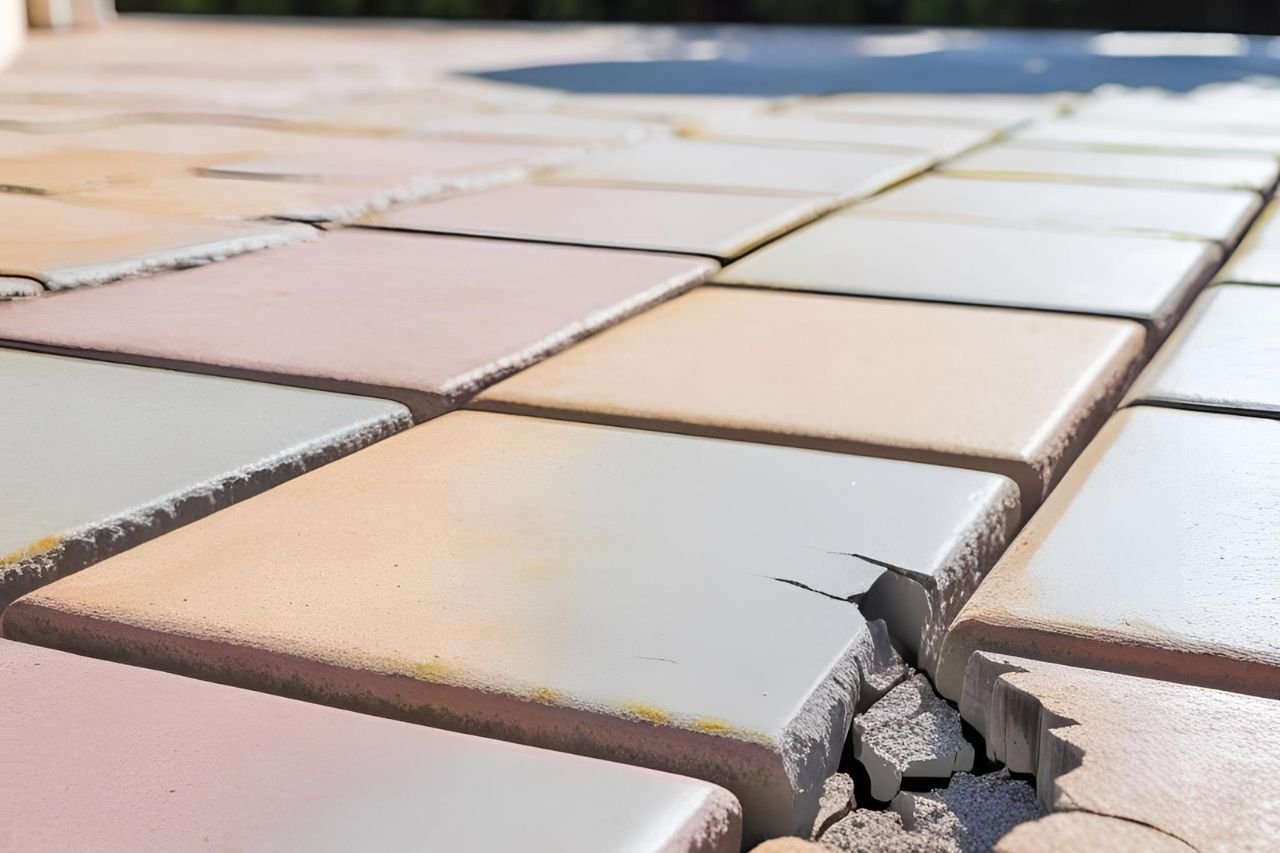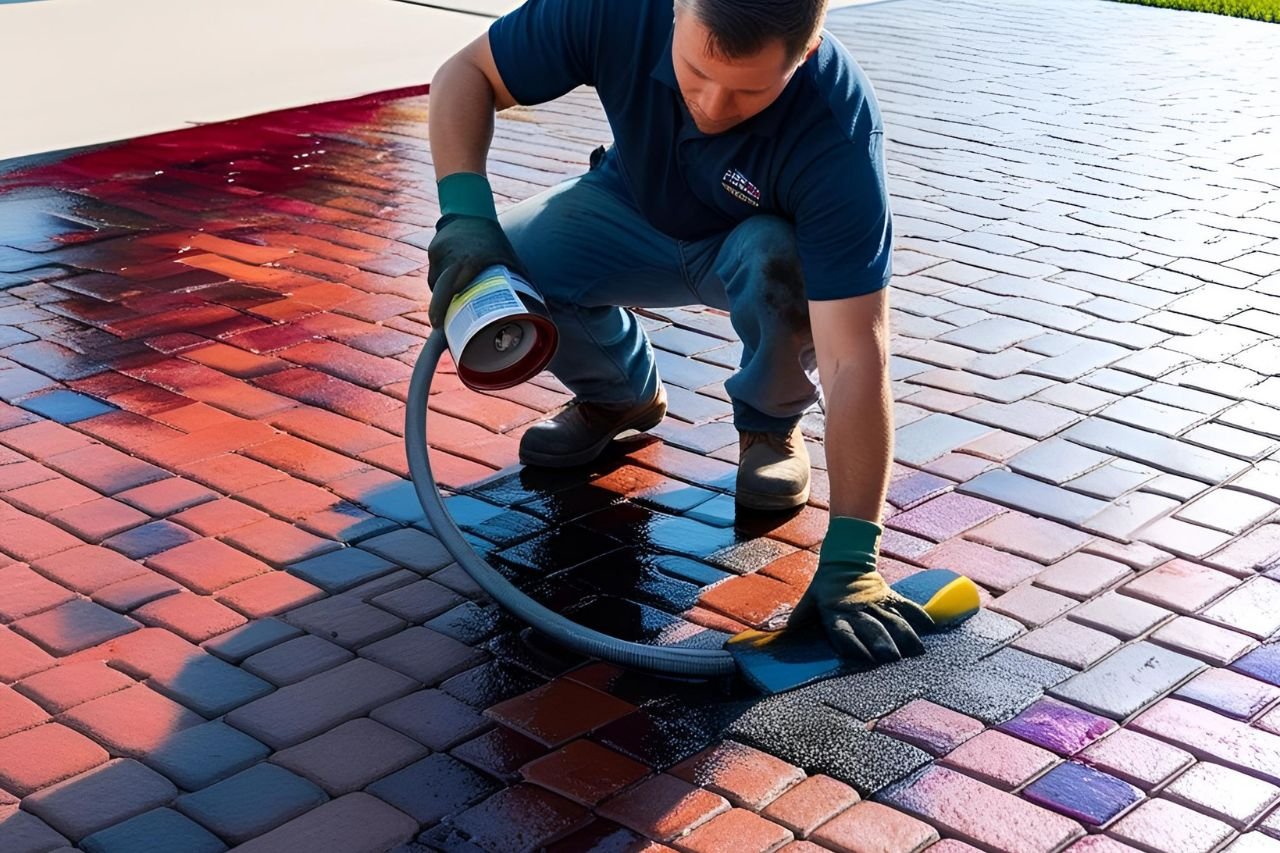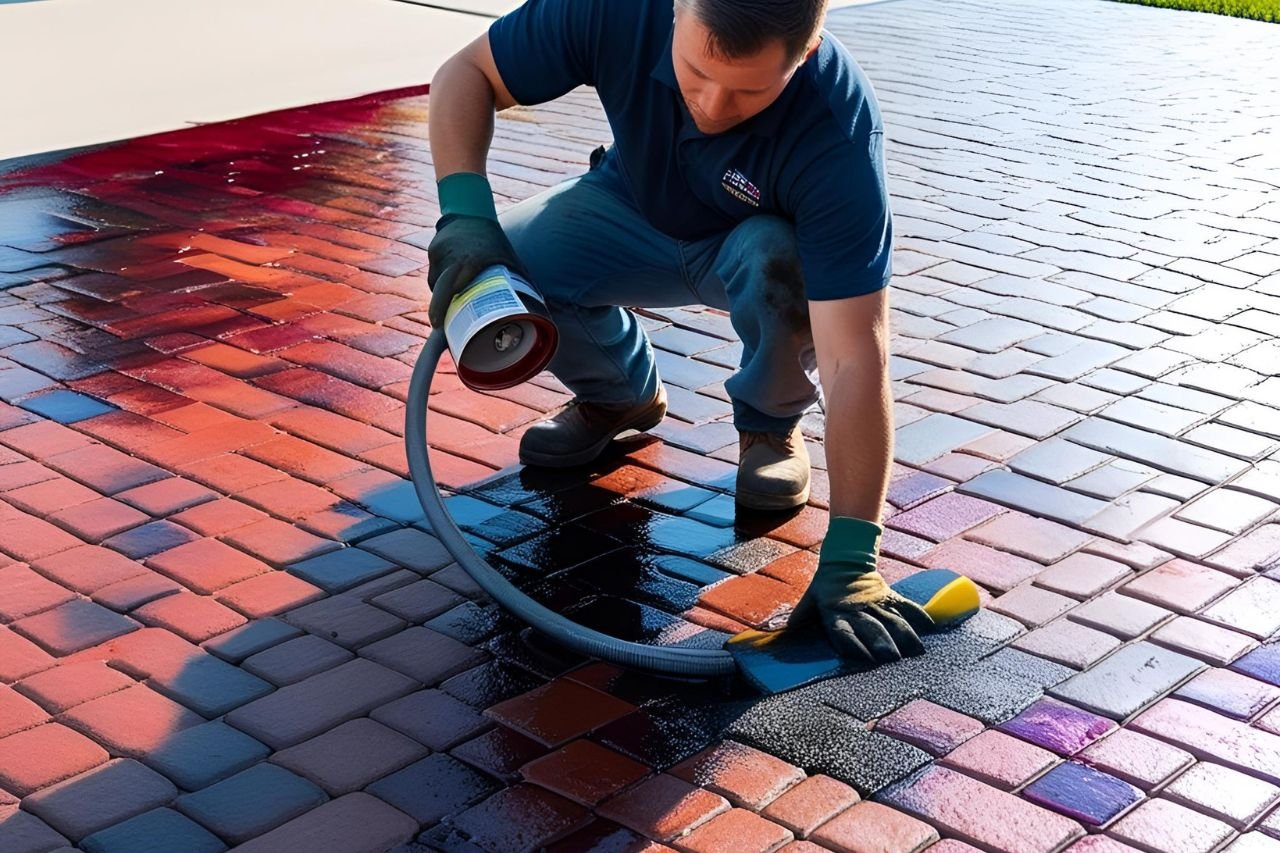Pavers typically need resealing when they show signs of fading, moisture absorption, or loose joint sand. Identifying these signs early helps prevent further damage and ensures pavers remain durable and visually appealing in Wesley Chapel’s climate.
Why Resealing Pavers Is Necessary
Resealing pavers is essential to maintain their protective layer and vibrant appearance. Unsealed surfaces are more susceptible to stains, erosion, and fading caused by Florida’s harsh weather. Regular resealing keeps outdoor areas in great condition and extends their lifespan.
Signs Your Pavers Need Resealing
Pavers often display visible signs that resealing is overdue, including:
- Fading Colors: Sun exposure causes unsealed pavers to lose their natural hues.
- Water Absorption: Pavers absorb water, leading to stains and structural damage.
- Loose Joint Sand: Weak sand between pavers indicates sealant wear.
Recognizing these signs early prevents costly repairs. Homeowners in Wesley Chapel can benefit from regular sealing, as explained in why sealing pavers is essential.
Why Do Pavers Fade Without Resealing?
UV rays from the sun fade paver colors over time, leaving surfaces dull and discolored. Sealants with UV protection help preserve color vibrancy by blocking harmful rays.
Faded pavers not only affect curb appeal but may also reduce property value. Resealing enhances brightness, restoring pavers to their original look.
What Happens When Pavers Absorb Water?
Unsealed pavers absorb moisture, which leads to stains, mold growth, and erosion. Water-resistant sealants create a barrier that repels moisture and prevents long-term damage, especially during Florida’s rainy season.
For surfaces exposed to rain and humidity, resealing is essential. Homeowners wondering about resealing intervals can explore how often pavers should be sealed for optimal maintenance.
Why Is Joint Sand Important for Pavers?
Joint sand stabilizes pavers and prevents movement. Over time, weather and traffic wear down the sand, causing pavers to loosen. Resealing locks the sand in place, ensuring stability and preventing weed growth.
Weak joint sand can compromise the entire structure, making resealing necessary to maintain durability.
How Does Resealing Prevent Stains from Oil, Dirt, or Grease?
Unsealed pavers easily absorb oil, grease, and dirt, leading to unsightly stains. Sealants prevent surface penetration, making cleaning easier and preserving the paver’s appearance.
Driveways and patios exposed to frequent use benefit greatly from resealing. Scheduling at the best time of year to seal pavers ensures effective results.
What Causes Paver Cracking and Erosion?
Without sealant protection, pavers are exposed to wear-and-tear from weather and foot traffic. Moisture infiltration can lead to cracking and erosion, shortening the lifespan of outdoor surfaces.
Regular resealing provides a durable layer that shields pavers from these issues, ensuring long-lasting performance.
Benefits of Resealing Pavers to Address These Issues
| Sign | Problem Caused | Solution |
|---|---|---|
| Fading Colors | Reduced curb appeal. | Resealing restores vibrancy. |
| Water Absorption | Stains and erosion. | Sealant creates a barrier. |
| Loose Joint Sand | Structural instability and weeds. | Locks sand and stabilizes gaps. |
| Stains | Unsightly appearance. | Blocks dirt, oil, and grease buildup. |
Why Is Resealing Worth the Investment?
Resealing saves property owners time and money by preventing expensive repairs and replacements. Well-maintained pavers enhance curb appeal and boost property value.
For areas prone to wear, resealing every 2–3 years is recommended to keep surfaces safe and visually appealing.
How Can Homeowners Prepare for Resealing?
Preparing the site before resealing ensures smooth application and effective results. Steps include:
- Clean the Surface: Pressure wash pavers to remove dirt and debris.
- Inspect for Damage: Repair cracks or loose pavers before resealing.
- Choose Quality Sealants: Select UV-resistant sealants suitable for Florida’s climate.
Frequently Asked Questions
1. Can resealing fix dull or faded pavers?
Yes, resealing restores color vibrancy and adds a polished look to faded surfaces.
2. How often should pavers be resealed?
Pavers require resealing every 2–3 years to maintain protection and visual appeal.
3. Does resealing prevent mold and weed growth?
Yes, sealants block moisture and stabilize joint sand, reducing mold and weed formation.
4. Can resealing prevent stains on driveways?
Resealing creates a barrier that repels oil, grease, and dirt, making driveways easier to clean.
5. What happens if pavers are not resealed?
Unsealed pavers are vulnerable to cracks, erosion, stains, and fading, reducing their lifespan.
Call Us Today
Recognizing the signs that your pavers need resealing is the first step to maintaining durable and attractive outdoor surfaces. Resealing prevents fading, cracking, and other issues caused by Florida’s climate. Visit Paver Installation for expert resealing solutions tailored to your needs.


